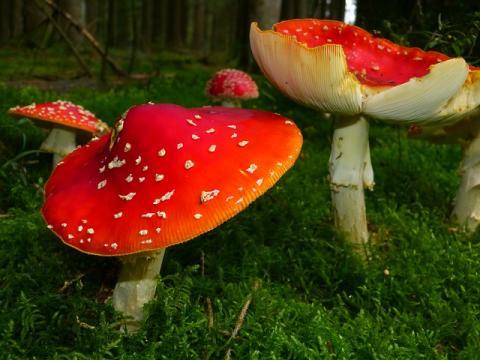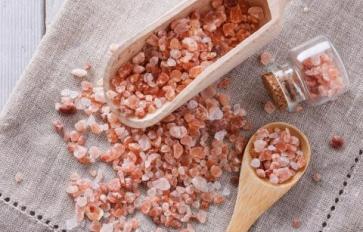
If you’re looking for a point-of-view that scares you into dropping your coffee habit by trash-talking coffee as unreservedly as coffee snobs trash-talk Starbucks, you won’t find it here. Sure, there are better things to put in your body than caffeine, and sure, your body will function far more effectively if you keep caffeine out of the everyday mix, but if you’re reading this, you’re likely already aware of the benefits of avoiding caffeine. If not, hang tight—we’ll get to that.
When operating from the notion that the body is exceptionally capable of healing itself when barriers to healing are at a minimum, keeping caffeine intake low is, of course, the ultimate goal. However, as inspiring as the kings and queens of cold turkey quitting are, many (not all) do better with a more gradual method. So for those of you looking to make a positive change without turning to negative reinforcement, you’ve come to the right place—this is an attainable upgrade. This article is not your mom, who tells you to cut out coffee altogether; it’s your cool aunt, who mischievously whispers behind your mom’s back, “if you’re going to misbehave, make sure you do it right.”
In this case, there are a couple of ways to do it right. One way is to consume caffeine in incrementally reduced amounts, and another way is to add beneficial elements to your current caffeine routine to begin to offset its negative effects and provide an extra dose of less harmfully generated energy to aid in the continued reduction of your caffeine intake. Enter mushroom coffee: the coffee upgrade that covers both of these bases at once. With a reduced caffeine content compared to the average cup of coffee, and a plethora of health benefits that both support the physiological processes caffeine typically disrupts and also provide additional nourishment, this beverage delivers the smell, taste, and feel of coffee, with much less toll on your system. Before we get into the health benefits of mushroom coffee, let’s take a look at the benefits you’ll reap just from cutting your caffeine intake.
Benefits of reducing your caffeine intake:
* Note that the benefits listed here represent the most widely documented and (for the most part) agreed upon effects—there are several subtle others that you’ll notice if you’re sensitive to the inner workings of your body’s balancing act.
- Improved digestion
- Decreased risk of hypertension
- Improved bone health
- Improved hormonal balance
- Decreased anxiety
- Improved quality of sleep
- Improved blood sugar regulation
- Increased mineral absorption (particularly in the cases of calcium, iron, potassium, magnesium, and trace minerals)
- Improved adrenal function
- Overall healthier and more efficient heart function, digestive function, central nervous system function, and mood regulation
On top of these benefits, there is something to be said for being free of dependencies, no matter how seemingly banal the vice. Luckily, in this case it isn’t necessary to choose between freedom and indulgence. So let’s get on with the good news, starting with your introduction to a sweet little character: mushroom coffee. Mushroom coffee is a fun(gal) spin on the traditional cup of coffee that packs major heat when it comes to healing power. The most common varieties of mushrooms used in these beverages are Reishi, Chaga, Cordyceps, and Lion’s Mane, and they usually come in powdered form (even individually packaged!), so you just have to add hot water and you’re good to go. The mushrooms are essentially flavorless when mixed with the coffee, so while the health benefits would justify its consumption even if it tasted like hot feet, what you’ll actually end up with is a drink that looks, smells, and tastes like the coffee you’d order at your favorite café.
As for the benefits, they vary depending on the type(s) of mushrooms you decide to go with (Four Sigmatic has several great blends, along with information about the specific benefits of each blend and some amazing educational content via the “Mushroom Academy” section of their site), but no matter which blend you go with, your body will thank you. Medicinal mushrooms of all kinds have been used for thousands of years in ancient healing modalities as tonics to improve immune function, build strength and stamina, and promote longevity, among numerous other uses. Even the National Institute of Health, government-directed (read: pharmaceutically-inclined) as they may be, is reporting on the health benefits of medicinal mushrooms, reporting in 2014 that they possess roughly 130 medicinal uses. The two most researched medicinal properties of fungi are their anti-tumor and immunostimulating properties, but these are just the tip of the iceberg when it comes to the healing power of mushrooms. Many of the healing virtues of fungi are linked to their polysaccharide content, which also contributes to the effectiveness of fungi in protecting against bacterial, fungal, and viral infections. Medicinal mushrooms are also rich in antioxidant properties, benefit the nervous system, and support detoxification and digestion processes. Simply put, they are the Swiss Army knives of supplements.
Of course, you’ll want to check with your physician before supplementing with mushroom coffee, or any other supplement for that matter, as well as do your own research on which blend is best for your individual needs. Each variety offers its own unique support for your system, but all medicinal mushrooms offer a level of support that is truly unrivaled in the world of wellness. This additional support, in conjunction with the benefits of reducing your caffeine intake, makes mushroom coffee an exponentially healthier alternative to the traditional coffee habit. In other words, it’s just the right kind of misbehavior.
*Author’s note: I am not financially or in any other way affiliated with Four Sigmatic—I just think they’re great people with great products.








